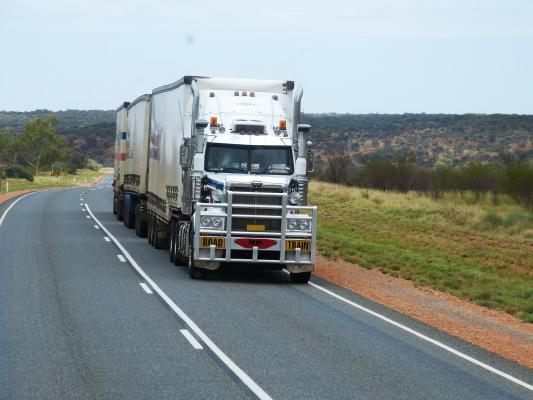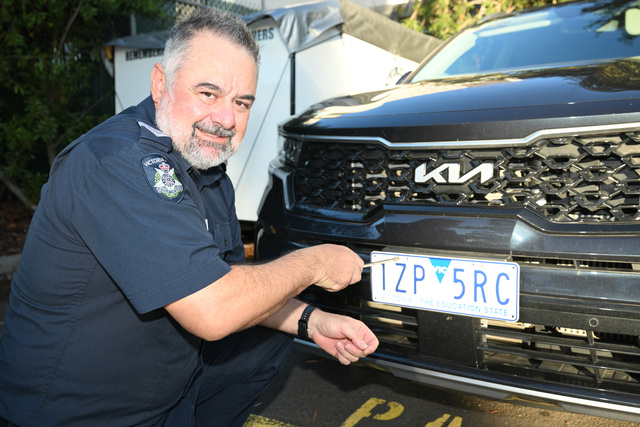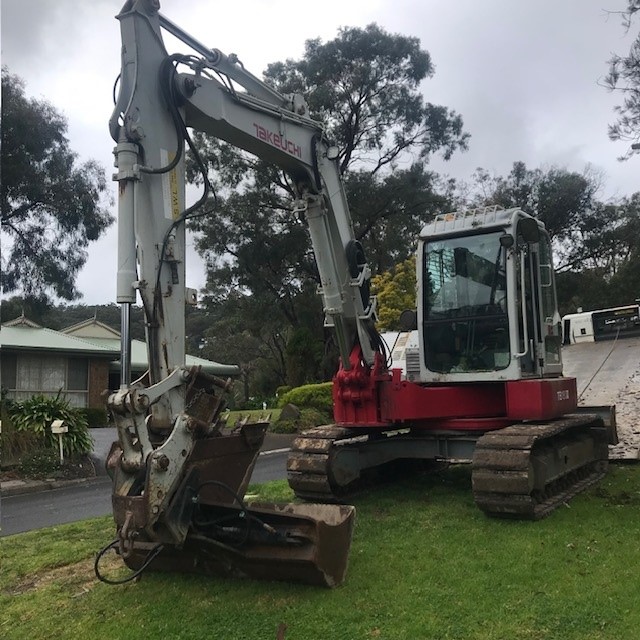Throughout the pandemic, nurses and supermarket workers racing to fill empty shelves have been praised as the unsung heroes on the frontline of the coronavirus plight.
The silent heroes behind the scenes are easily overlooked, out of sight as they drive up and down highways fully loaded in order to keep the supply chain moving and shelves stacked.
While many industries shut completely, the road transport industry kept on trucking – drivers working tirelessly to keep up with unprecedented demand for groceries, masks, endless mounds of toilet paper and supplies to keep other essential industries afloat.
But with parts of the country in lockdown and new border-to-border testing regimes, the road transport industry now faces the risk of supply chain delays.
Drivers based in Victoria who travel interstate to deliver freight are now required to be tested at least once every three days and must obtain various permits to enter each state.
As authorised and essential workers, the freight industry is operating on Specified Worker (Low Workplace Interaction) Permits that allow for multiple entries into Victoria during a 14-day period, after which a new permit must be issued.
Pop-up testing sites have been set up along the main road from Melbourne to Sydney – the Hume – at Beveridge Truck Stop southbound and the Broadford weighbridge heading north.
The sites are open from 6pm to 6am each night for drivers to pull into and take the required test. They are then free to go and informed within 24 hours of the result.
Director of Interstate at Bayswater-based Cameron Group, Denis Blaney, said his drivers are now required to have a test every three days if they are coming into Victoria.
“They have to keep all records to show proof that they had the test and got the clearance. It is a task that is a bit difficult because they’ve got to have a test and can do it at one of the pop up sites but if there is a queue it makes it really hard because everyone’s time is a bit short,” Mr Blaney said.
“It can make them run out of their driving hours. While the pop up sites are of benefit the risk that is associated with that is queuing and drivers being out of hours, and then they get booked or might have to stop 25kms out of Yarra Glen coming into Melbourne because they’re out of time,” he said.
Mr Blaney said the time truckies spend queuing for tests is counted as driving time, with most drivers running on 12 or 14 hour time-windows before being pulled off the road to comply with road laws.
“It’s not a burden, but another requirement they have to be on top of,” he said.
The owner of an interstate company in the Dandenong Ranges, who wished to remain anonymous, said the testing regime is “plagued with dumbness”.
“No one is being straightforward with the information. If you jump on the National Heavy Vehicle Regulator website it’s just a mixed jumble of words and you don’t know which way to roll with it,” he said.
“Drivers want it kept easy and it should be the same across the board. They should pick one day a week for drivers to have a Covid test and grab a permit for NSW, Victoria and QLD. We could all understand that, but the problem is the permit system. Queensland wants a permit every 13 days, NSW you have to fill out a permit saying you’re travelling through but not in a red zone. It’s all just trying to determine what state wants what,” he said.
The trucking figure said drivers have been pulling into pop-up testing sites to be turned away due to the hubs running out of testing kits.
“Every state seems to be implementing the every three day testing requirement. I don’t know how we can get drivers into places every three days. They’ve been going places and turned away because they’ve run out of testing kits so they’ve got to try and do it on the road somewhere while driving, or the testers say they’re going to have lunch and drivers are kept waiting,” he said.
“They’re only open at night-time, 6pm until 6am. They’ve got it wrong. Our drivers aren’t on the road at night. It’s got to be open 24 hours a day,” he said.
The impact of queues at testing sites is being felt further down the supply line by delaying loading and unloading times for deliveries of supplies, the figure said.
“Anything more than half an hour makes a big impact on us. All we can do is give drivers extra time to complete trips and try to get our heads around every state’s different rules,” he said.
An owner-operator from Mt Evelyn said “the Covid side of things is killing drivers really”.
“Every time I go to South Australia I have to have a Covid test. Next week I’ve got to have two tests before I even get to the border. It does impact us, but only the testing, because we are essential we seem to be getting more and more work which is a plus,” the driver said.
Mr Blaney agreed and said the design of Cameron’s business model means it “hasn’t experienced any long term interruptions” to its service despite testing requirements and the pandemic.
“Because of the different stages of lockdowns, when we were in lockdown but Sydney wasn’t, the volume in Sydney increased and there were significant spikes but now we are both in lockdown it’s pretty balanced and the transfer of goods between Melbourne, Sydney and Adelaide has equated itself. It’s increased across the board but there isn’t a spike from one centre at the moment,” Mr Blaney explained.
The workload back at the office has also increased, with support and office staff working around the clock to keep up with ever-changing demands from various government bodies.
“We have meetings three times a week and Zoom calls that we didn’t have to do previously. We now have a whole team of people that are dedicated to monitoring government policies and procedures so we are right up to date with all of the changes and all our team are getting the communication from one voice,” Mr Blaney said.
Mr Blaney said Cameron’s are monitoring drivers mental health given the stringent new rules.
“We’ve not noticed at this stage that there has been any impact on mental health and a lot of that comes from the structure of the business, we do depot to depot drops so our drivers have been in the same pattern for years.
“For example, one of our vehicles goes Melbourne to Sydney, rather than stopping all over the place or being sent to Adelaide randomly. That means it is easy for us to work out what permits are needed and they aren’t going all over the place like some of the smaller and medium operators. The stress at the moment would come from not knowing where you might be going at the end of the week and not having a repetitive route,” Mr Blaney said.
The new rules were introduced after rouge furniture removalists entered Victoria while positive with Covid-19, resulting in an extended snap lockdown for the state. The actions of the removalists were recently slammed by the Victorian Transport Association, who said the rule-flouters were not a representation of the broader transport industry.
“The majority of freight drivers have done a magnificent job during the pandemic of keeping supply chains moving. It is most unfortunate the irresponsible actions of these individuals have brought the transport industry into some disrepute,” VTA CEO Peter Anderson said.
The government has also implemented a hard ban on furniture removal transport into Victoria by professional and recreational owner-driver type furniture removal operators.







